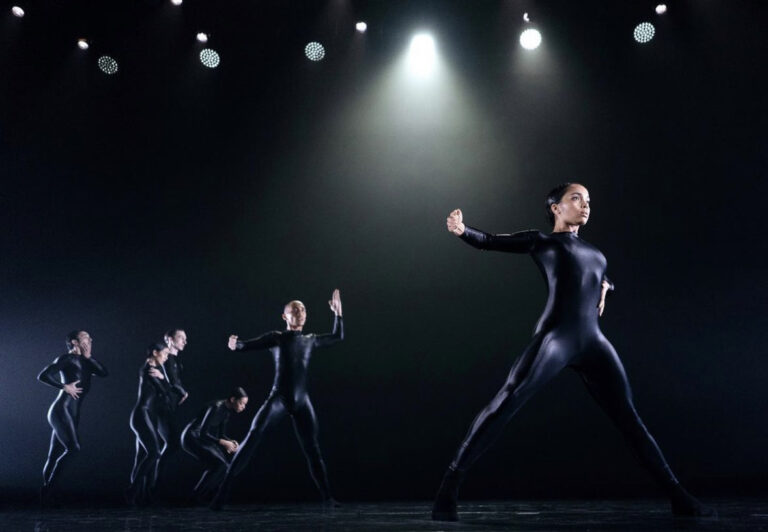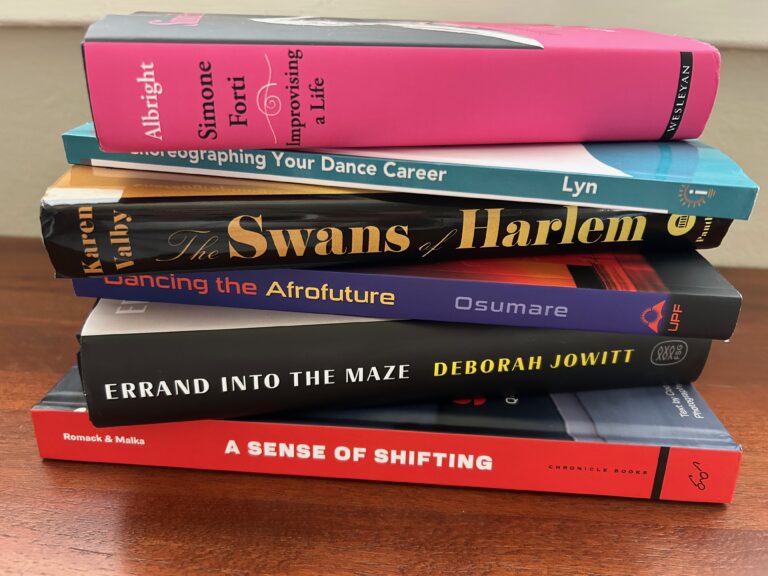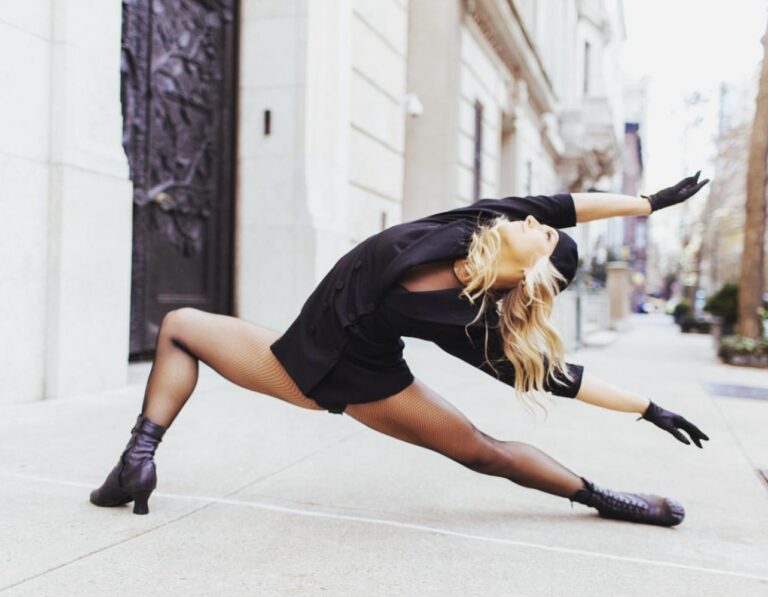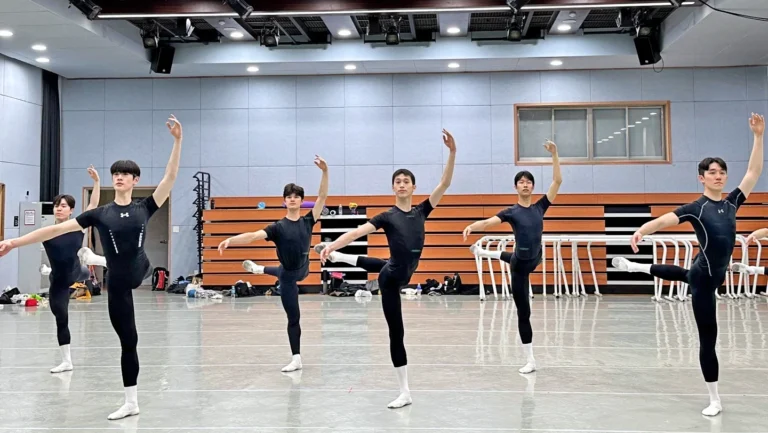
One of the most influential choreographers of the 20th century, Martha Graham (1894–1991) helped lead the American modern dance revolution, breaking from the traditions of classical ballet as well as the romantic style of earlier modern dance pioneers. The Pennsylvania native came to dance relatively late: At 22 she began studying with Ruth St. Denis and Ted Shawn and joined the Denishawn dancers soon after. Graham formed her own performance troupe in 1926, and in order to train dancers for her work, she developed a codified technique. Her movement vocabulary stemmed from breathing: the changes in one’s body from the actions of exhale (contraction) and inhale (release). Over time, she developed a series of complex floor-work exercises (also including falls and spirals) that evolved into what we know as Graham technique.

Vocabulary
- Contraction: The percussive action of exhale; it’s a curved lower spine and rounded pelvis—initiated from the pelvis.
- Release: The action of inhale. Initiated with the pelvis, it’s an extended lower back and elongated spine.
- Inner landscape: “The soul of man.” It was Graham’s fundamental quest to express the human psyche.
The Work:
Capturing human emotion, desire and suffering, Graham’s dramatic and often politically charged works draw inspiration from American life, ritual and Greek mythology. She often starred in her pieces and didn’t retire from the stage until well into her 70s. Notable works include:
- Lamentation (1930): Perhaps Graham’s most famous work, the grieving performer is constrained by a tube of fabric.
- Chronicle (1936): Graham choreographed this work after rejecting Nazi Germany’s invitation to perform at the Berlin Olympics. It expresses the plight of the suffering during the Great Depression and wartime devastation.
- Appalachian Spring (1944): Created in collaboration with composer Aaron Copland, this American masterpiece illustrates a young pioneer couple on their wedding day.
- Night Journey (1947): It’s the story of Oedipus from Jocasta’s perspective, with a set by Isamu Noguchi and music by William Schuman.
- Maple Leaf Rag (1990): A departure from Graham’s usual dramatic work, this humorous piece is set to the music of Scott Joplin.
The Legacy Lives On:
- Led by artistic director Janet Eilber, Martha Graham Dance Company continues to tour internationally. It performs Graham’s masterpieces as well as works by contemporary choreographers like Doug Varone, Lar Lubovitch and Richard Move, who is best known for their critically acclaimed impersonations of Graham.
- The Martha Graham School of Contemporary Dance is now located in the historic Westbeth studios of Manhattan’s West Village. Virginie Mécène directs the school and its performance troupe Graham II.
- Former members of MGDC include Jacqulyn Buglisi, Merce Cunningham, Pearl Lang, Elisa Monte, Pascal Rioult, Anna Sokolow, Paul Taylor and Glen Tetley.
Fun Facts:
- To help fund her burgeoning company, Graham taught a movement for actors class in Greenwich Village. Students included Bette Davis, Gregory Peck and Orson Welles.
- Invited by Eleanor Roosevelt, Graham was the first dancer to perform at the White House—for President Franklin Roosevelt in 1937.
- Graham received a Dance Magazine Award in 1956 and the Presidential Medal of Freedom in 1976.
- Erick Hawkins was the first male dancer in Graham’s company. They were married for six years.
Check out these resources for your students:
Print:
- Blood Memory by Martha Graham (Doubleday, 1991)
- Martha: The Life and Work of Martha Graham by Agnes de Mille (Random House, 1991)
- Martha Graham: Sixteen Dances in Photographs by Barbara Morgan (Morgan & Morgan, 1980)
- Martha Graham in Love and War: The Life in the Work by Mark Franko (Oxford, 2012)
- “Martha Graham,” by Maureen Jansen (Dance Teacher, March 2005)
Video:
Martha Graham Dance Company YouTube channel
- Martha Graham: Dance on Film (The Criterion Collection, 1997)
- Martha Graham: An American Original in Performance (Kultur Video, 2002)
Online:
- The New York Times, Martha Graham obituary: nytimes.com
- Martha Graham Dance Company: marthagraham.org
- The Kennedy Center’s Digital Resources Library: www.kennedy-center.org





